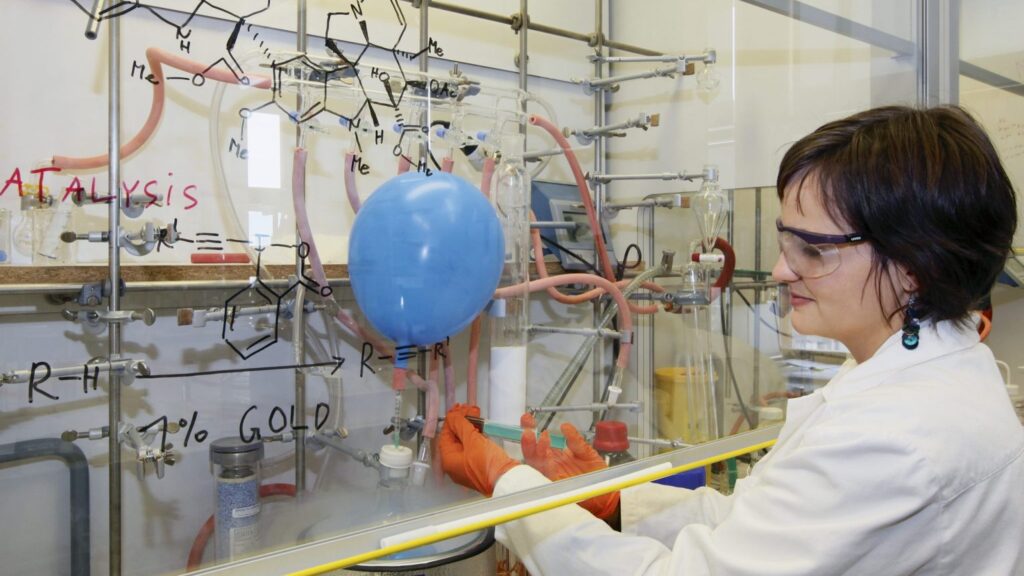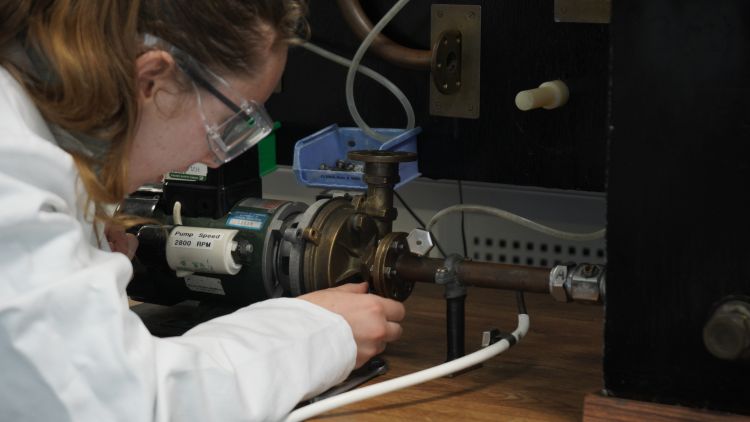Determining whether chemical engineering or biotechnology is better depends on personal interests and career objectives. Chemical engineering focuses on industrial processes for product manufacturing across sectors like petrochemicals, pharmaceuticals, and materials. It requires a strong foundation in chemistry and mathematics.
Biotechnology, in contrast, employs living organisms or biological systems to develop solutions in healthcare, agriculture, and the environment. This field appeals to those interested in biology, genetics, and advanced technologies. Both offer promising career prospects and opportunities for societal impact.
Exploring internships or research projects can provide valuable insights into which aligns best with individual goals and passions. Ultimately, the choice hinges on one’s interests, skills, and long-term aspirations.
What is Chemical Engineering?

Chemical engineering is a branch of engineering that applies physical sciences (chemistry and physics) and life sciences (biology, microbiology, and biochemistry) along with mathematics and economics to produce, transform, transport, and properly utilize chemicals, materials, and energy.
Chemical engineers design, optimize, and operate processes and systems that involve the production of chemicals, fuels, pharmaceuticals, food, and other materials on an industrial scale. They work across various industries such as petroleum, pharmaceuticals, food and beverage, energy, and environmental engineering, among others.
Essentially, chemical engineers focus on translating laboratory discoveries into large-scale, commercial processes that benefit society.
How to Choose Between Chemical Engineering and Biotechnology?
Choosing between chemical engineering and biotechnology depends on various factors, including your interests, career goals, strengths, and preferences. Here are some considerations to help you make an informed decision:
Interest and Passion
Consider which field aligns more closely with your interests and passion. If you are fascinated by biology, genetics, and the application of living organisms in various industries, biotechnology might be a better fit.
On the other hand, if you are more interested in chemistry, chemical processes, and the production of materials and chemicals, chemical engineering might be more suitable.
Career Goals
Think about your long-term career goals and aspirations. Research the job opportunities and career paths available in both fields to determine which aligns better with your career objectives.
Chemical engineering offers opportunities in industries such as petroleum, pharmaceuticals, food and beverage, and environmental engineering, while biotechnology spans industries such as healthcare, agriculture, pharmaceuticals, and environmental science.
Skills and Strengths
Assess your strengths and skills. Chemical engineering typically requires strong analytical, problem-solving, and mathematical skills, as well as an understanding of chemical processes and thermodynamics.
Biotechnology often requires a solid foundation in biology, genetics, and biochemistry, as well as laboratory skills and knowledge of molecular techniques.
Educational Background
Consider your educational background and academic interests. Chemical engineering programs typically focus on chemistry, physics, and engineering principles, while biotechnology programs often have a stronger emphasis on biology, genetics, and biotechnology techniques. Choose a program that aligns with your academic strengths and interests.
Industry Trends and Opportunities
Research the current trends and growth opportunities in both fields. Consider factors such as job market demand, salary potential, and opportunities for advancement.
Both chemical engineering and biotechnology are dynamic fields with evolving technologies and innovations, so staying updated on industry trends can help you make an informed decision.
Work Environment
Think about the type of work environment you prefer. Chemical engineers may work in manufacturing plants, laboratories, research facilities, or corporate offices, depending on their industry and role.
Biotechnologists may work in biotech companies, pharmaceutical firms, research institutions, or academic settings. Consider which work environment aligns better with your preferences and lifestyle.
Which Offers Better Career Opportunities?

The question of which field offers better career opportunities, chemical engineering or biotechnology, doesn’t have a straightforward answer as it depends on various factors including market demand, industry trends, individual skills, and geographical location. However, I can provide some insights into the career prospects of both fields:
Chemical Engineering
Chemical engineering is a broad discipline with applications in diverse industries such as petroleum, pharmaceuticals, food and beverage, energy, environmental engineering, and materials science.
Chemical engineers are involved in designing, optimizing, and operating processes for the production of chemicals, fuels, pharmaceuticals, and other materials on an industrial scale. The demand for chemical engineers may vary depending on factors such as economic conditions, technological advancements, and regulatory changes in specific industries.
Overall, chemical engineering offers a wide range of career opportunities across various sectors, and chemical engineers are typically well-compensated for their skills and expertise.
Biotechnology
Biotechnology is a rapidly growing field with applications in healthcare, agriculture, food production, environmental conservation, and industrial processes. Biotechnologists work on developing new drugs, vaccines, diagnostic tools, genetically modified crops, biofuels, and environmental solutions using living organisms or their systems.
The biotechnology industry has witnessed significant growth in recent years, driven by advancements in genomics, bioinformatics, gene editing technologies, and personalized medicine. Career opportunities in biotechnology are diverse, ranging from research and development to production, quality assurance, regulatory affairs, and entrepreneurship. Biotechnology companies, pharmaceutical firms, research institutions, and government agencies are among the primary employers of biotechnologists.
Final Words
When thinking about whether to pursue chemical engineering or biotechnology, it’s essential to consider your interests and career goals. Both fields offer exciting opportunities and the chance to make a difference in the world. Take time to explore the core principles and focus areas of each discipline. Consider the potential impact on society and the global challenges you are passionate about addressing.
By making an informed decision, you can embark on a rewarding career path that aligns with your strengths and aspirations. Remember, there’s no one-size-fits-all answer, so trust your instincts and choose the path that feels right for you.
